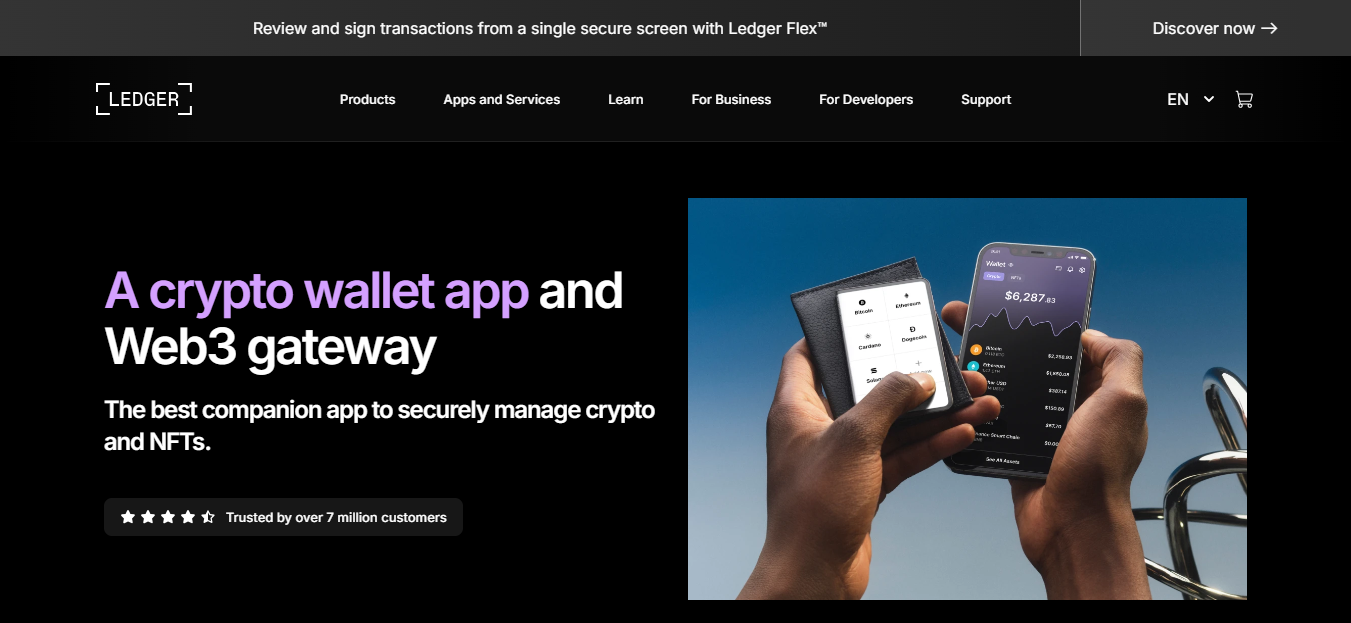
Unlocking the Future of Finance: Secure Your Digital Assets with a Next-Gen Crypto Wallet
As the digital economy rapidly evolves, decentralized finance (DeFi) and Web3 are transforming the way we interact with money, data, and the internet itself. With billions of dollars flowing through decentralized protocols and non-custodial platforms, the importance of security has never been more critical. Enter the next-generation crypto wallet: your gateway to the decentralized world and your fortress of digital protection.
Whether you’re trading tokens, earning yield, minting NFTs, or simply storing digital assets, your crypto wallet is more than just a storage tool—it’s your digital identity in the world of Web3. But with this power comes responsibility. Choosing the right wallet can mean the difference between thriving in DeFi or falling victim to cyber threats.
In this article, we’ll explore how a secure crypto wallet is essential for navigating the DeFi and Web3 ecosystem—and why it’s the cornerstone of your journey into the future of finance.
What Is a Crypto Wallet?
A crypto wallet is a tool that allows users to store, manage, and interact with their cryptocurrencies and digital assets. But unlike traditional wallets that hold physical currency, crypto wallets store private keys—strings of cryptographic data that grant access to your blockchain-based assets.
There are two main types of crypto wallets:
Hot wallets: Connected to the internet, offering convenience for regular transactions. Examples include browser extensions, mobile apps, and exchange wallets.
Cold wallets: Offline storage solutions that offer maximum security. These are hardware wallets or paper wallets, ideal for long-term holding.
The most secure approach for serious investors and DeFi users is using hardware wallets—cold storage devices that keep your private keys isolated from online threats.
Why Security Matters in DeFi and Web3
The decentralized nature of blockchain technology removes intermediaries and puts you in full control of your assets. But this also means that you are your own bank. If you lose access to your wallet or fall for a phishing scam, there’s no central authority to restore your funds.
Common Threats in Web3:
Phishing attacks: Fake websites or wallet pop-ups trick users into giving up their private keys or signing malicious transactions.
Smart contract exploits: Bugs or vulnerabilities in decentralized applications (dApps) can result in lost or stolen funds.
Malware and keyloggers: Malicious software can target hot wallets and steal login credentials or seed phrases.
Rug pulls and scams: Fraudulent DeFi projects can disappear with user funds.
In this landscape, wallet security isn’t optional—it’s essential.
Enter the Hardware Wallet: Your Digital Safe
A hardware wallet is a physical device that stores your private keys offline, making it immune to online attacks. Even when connected to your computer or mobile device, the keys never leave the secure chip inside the wallet.
Here’s why hardware wallets are trusted by millions of users around the world:
1. Offline Storage (Cold Wallet Security)
The private keys remain disconnected from the internet, making them inaccessible to hackers and viruses.
2. Secure Transaction Signing
Transactions must be physically confirmed on the device, adding a layer of security that software wallets cannot match.
3. Backup and Recovery
During setup, users receive a recovery phrase (seed phrase), which can be used to restore wallet access if the device is lost or damaged.
4. Tamper-Proof Technology
Modern hardware wallets include secure elements and firmware verification to detect any unauthorized modifications.
Seamless Integration with DeFi & Web3
Security shouldn’t come at the cost of convenience. Leading hardware wallets now support seamless integration with DeFi platforms, Web3 apps, and NFT marketplaces. Whether you’re staking ETH, providing liquidity, minting NFTs, or voting in DAOs, your hardware wallet can connect to:
WalletConnect
MetaMask
Solana Phantom Wallet
Ethereum Layer 2 protocols (Arbitrum, Optimism)
NFT platforms like OpenSea and Blur
DeFi protocols like Uniswap, Aave, Compound, and Curve
This means you can interact with thousands of dApps directly from your secure hardware device—no compromise needed.
Total Control of Your Assets
In traditional finance, banks and institutions hold your funds. In Web3, you hold your keys—and with them, complete control over your digital life. A secure crypto wallet ensures:
Self-custody: No third party can freeze, seize, or limit your access.
Privacy: No need to disclose personal information to use most dApps.
Freedom: Move assets anytime, anywhere, with no middlemen.
With self-custody comes empowerment—but also responsibility. A secure wallet empowers you to be your own bank, investor, and identity provider in the digital age.
Built for Web3 Power Users and Newcomers Alike
You don’t need to be a blockchain expert to use a secure crypto wallet. Today’s hardware wallets are built with user experience in mind, offering:
Easy setup and onboarding
Mobile app connectivity
Clear transaction verification
Support for thousands of tokens and NFTs
Multichain compatibility (Ethereum, Bitcoin, Solana, BNB Chain, Polygon, and more)
Whether you're a seasoned DeFi investor or just starting your crypto journey, a hardware wallet adapts to your needs and grows with you.